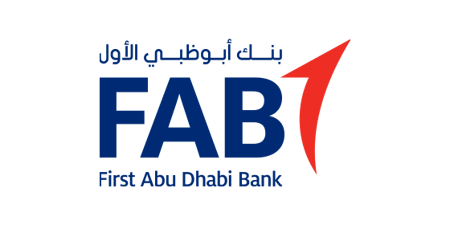
Industry:Banking and Financial Services
Client:First Abu Dhabi Bank
Region:Other Regions
Robots provide fantastic value for First Abu Dhabi Bank

1.3 million
hours saved
210 mil. AED+
staffing and other cost savings
9.2 million
successful transactions
56%
reduced average handling times
Client Overview
First Abu Dhabi Bank (FAB) is the UAE’s largest bank and one of the world’s biggest and safest financial institutions. It offers an extensive portfolio of tailored solutions, products, and services designed to meet the unique needs of retail, corporate, and investment clients. Formed through the merger of FGB and NBAD in 2016, FAB can trace its origins back over 45 years.
When we speak about digital transformation in banking, the first thought is often the front-end and the shift to digital channels for customer service. However, there is another, possibly bigger story at the back-end, where advanced processes are adding speed, simplicity, and reliability to operations in ways that customers will never see.
FAB's journey into the world of intelligent automation (IA) began in 2019 when it launched its first robotic process automation (RPA) pilot project. The IA center of excellence was established within the Data Analytics and artificial intelligence (DAAI) department to drive IA initiatives across the bank. Under the leadership of Suhail Bin Tarraf, Group chief operating officer, the unit continuously aspires to explore new ways to automate processes and improve efficiency.
This unit integrates RPA with cutting-edge technologies such as artificial intelligence (AI), machine learning (ML), natural language processing (NLP), and cognitive capabilities to streamline operations, enhance efficiency, and drive digital transformation. Its scope extends across FAB's global network, encompassing both UAE and international branches, with a focus on setting standards, selecting optimal processes for automation, and building scalable solutions with reusable components. Additionally, the unit assumes responsibility for the ongoing support and management of automations deployed throughout the bank.
The bank’s IA center of excellence has delivered over 285 projects, introduced 110 software robots, undertaken over 9.2 million successful transactions; also, 1.3 million hours of work were saved, reducing average handling times by 56 percent, and cutting turn-around times by 25 percent on average. It’s estimated that RPA has delivered staffing and other cost savings of upwards of AED 210 million.
Delivering results by reducing manual workloads
A high-value ‘quick win’ was used to launch the RPA program, specifically through the process of reallocating relationship managers across various accounts. This was an admin-heavy process with a direct impact on customers. The previous manual process required coordinating multiple systems and making thousands of record changes, which was slow and error-prone.
The results were instantly revolutionary. This complex process, previously taking up to seven days, was reduced to a single day, resulting in an 88 percent increase in efficiency. Additionally, process turn-around times were improved by 75 percent saving 840 hours annually.
FAB’s commitment to automation extended to addressing vital regulatory requirements. For instance, verifying the passports and identities of all customers at the time was an arduous task. The bank’s solution was to deploy 11 software robots, working around the clock, which not only saved 80,000 hours of labor annually but also ensured regulatory compliance, avoiding costly fines.
FAB takes a thoughtful approach to automation by carefully selecting priorities. Using a tool called ‘Robofit’, proposals are assessed based on criteria such as potential time savings, regulatory compliance, customer impact, revenue generation, and complexity. Ideally, the bank looks for important, simple, and high-impact opportunities, while also leveraging early ‘quick wins’ to build momentum.
The bank has also engaged closely with its employees to illustrate that robots are assistants that can help them in their jobs. This allows them to focus on more important tasks or cross-sell services instead of wasting time on administrative tasks.
Adding intelligence to automation
Looking ahead, FAB is continuing to invest in IA. “We’ve already deployed numerous IA solutions by integrating RPA with chatbots and email classification technology. But we acknowledge there is much more potential to explore,” says Suhail Bin Tarraf, Group chief operating officer, FAB. “Given the rapid pace of technological advancement, it is crucial that we remain vigilant in monitoring the market for new developments that can infuse greater intelligence into our automated solutions, thereby yielding additional benefits.”
From the outset, UiPath emerged as FAB’s preferred RPA solution, thanks to its well-established market leadership in the IA space, providing an innovative and ever-evolving suite of transformative tools.
In the upcoming year, we are planning to delve deeper into these features, including Apps, Process Mining, Document Understanding, AI Centre and Test Manager, with the aim of delivering even greater value to our internal stakeholders and customers alike.
Suhail Bin Tarraf • Group chief operating officer (COO), FAB
By integrating these capabilities with emerging technologies such as Generative AI and AskGPT, the bank sees countless opportunities to further amplify past success.
FAB’s automation journey is now well advanced and continues to move forward. In UiPath Automation Suite, it has a control panel that keeps score of every software robot created—it shows the business case for the project, measuring benefits while also outlining how a process was handled before and after automation. “We are able to show time savings, efficiency increases and reduced costs, and that RPA initiatives aren’t vanity projects,” Suhail Bin Tarraf concludes “They’re changing the way we work for the better, and creating more efficient, compliant, effective organisations around the world.”
Ready for your own case study?
Speak to our team of knowledgeable experts and learn how you can benefit from agentic automation.
